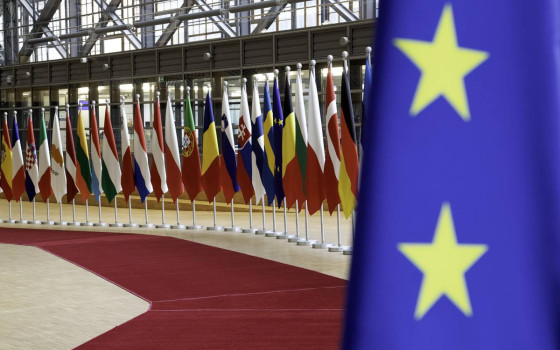
New rules to protect citizens and the financial system in the European Union from money laundering and terrorist financing

- Europe and Arabs
- Thursday , 30 May 2024 16:10 PM GMT
Brussels: Europe and the Arabs
The European Council in Brussels adopted a package of new anti-money laundering rules that will protect European Union citizens and the European Union financial system from money laundering and terrorist financing.
“The new and stricter rules will strengthen our systems in combating money laundering and terrorist financing,” said Vincent van Petegem, Belgian Finance Minister, whose country holds the rotating presidency of the Union. “A new agency based in Frankfurt will supervise the work of the actors involved. This will ensure that no space is left behind.” For fraudsters, organized crime and terrorists to legitimize their proceeds through the financial system.
With the new package, all rules applicable to the private sector will be transferred to a new, directly applicable regulation, while the directive will address the organization of national authorities competent to combat money laundering and combating the financing of terrorism (AML/CFT).
According to a European statement issued in Brussels on Thursday, “This regulation comprehensively harmonizes anti-money laundering rules for the first time across the European Union, closing loopholes for fraudsters.”
It expands anti-money laundering rules to include new obligated entities, such as most of the cryptocurrency sector, luxury goods traders, and football clubs and agents. The regulation also sets more stringent due diligence requirements, regulates beneficial ownership and sets a limit of €10,000 for cash payments, among other things.
The Directive will improve the organization of national anti-money laundering systems, setting clear rules on how financial intelligence units (FIUs – national bodies that collect information on suspicious or unusual financial activities in member states) and supervisors should work together.
The package provides for the establishment of a new European Anti-Money Laundering and Countering the Financing of Terrorism Authority (AMLA) which will have direct and indirect supervisory powers over high-risk obligated entities in the financial sector.
Given the cross-border nature of financial crimes, the new authority will work to enhance the efficiency of the AML/CFT framework by establishing an integrated mechanism with national supervisors to ensure obligated entities comply with obligations related to AML/CFT in the financial sector. AMLA will also have a supporting role in relation to the non-financial sector, coordinating and supporting financial intelligence units.
In addition to the supervisory authorities and in order to ensure compliance, in cases of gross, systematic or repeated violations of directly applicable requirements, the Authority will impose financial sanctions on the selected obligated entities.
The new anti-money laundering directive also requires EU member states to make information from central bank account registries - which contain data on who has which bank account and where - available through a single access point. Since the Anti-Money Laundering Directive will provide access to only a single point of access for financial intelligence units, the Council today adopted a separate Directive to ensure that national law enforcement authorities have access to these records via a single point of access. This guidance also includes bank statement formatting. This direct access and use of coordinated formats by banks is an important tool in the fight against criminal offenses and in efforts to trace and confiscate the proceeds of crime.
This is the last step of the adoption procedure. The texts will now be published in the Official Journal of the European Union and enter into force.
The Anti-Money Laundering Regulation will be implemented three years after it enters into force. Member states will have two years to replace some parts of the AML Directive and three years to replace other parts.
AMLA will be based in Frankfurt and will begin operations in mid-2025.
On 20 July 2021, the Commission presented its package of legislative proposals to strengthen EU rules on anti-money laundering and countering the financing of terrorism (AML/CFT). This package consists of:
The regulation creates a new EU Anti-Money Laundering Authority (AMLA) which will have powers to impose sanctions and sanctions
A regulation that recasts the Money Transfer Regulation which aims to make crypto asset transfers more transparent and fully traceable (which was adopted in May 2023)
Regulation of anti-money laundering requirements in the private sector
Guidance on anti-money laundering mechanisms at the national level
The Commission submitted a proposal for a Single Point of Access Directive on 25 November 2021.












No Comments Found